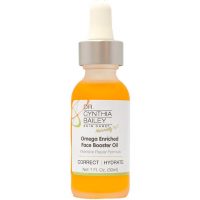Dermatologist's Earth Day Celebration Every Day!

My dermatologist's Earth Day Celebration is serious stuff for me here in my little town in Northern California. I celebrate Earth Day every day with my choices. I'm a big organic vegetable gardener and my patients and I are 'natural Nellies' meaning we take our non-toxic lifestyle and natural skin care seriously. And, you know me, I don't sacrifice results in the process.
Discover real, non-toxic skin care and home care products developed by a dermatologist.
Celebrate Mother Earth with a re-evaluation of the personal and home care products you use. It’s now common knowledge that the skin care and home cleaning choices we make impact our planet. We don’t live in isolation.

Skin care products wash down your drain and into the local waterways, eventually entering the aquatic ecosystems. What accumulates in the environment affects all life, fish, foul, animals – and ultimately, comes back to our families in the form of the water we drink and the food we eat.
Some of the least eco-friendly personal skin care products include those made with synthetic fragrances like phthalates.
What are phthalates in skin care and home cleaning products?
Phthalates are a group of chemicals used in artificial fragrance to help enhance it and make it last. Phthalates are used “in hundreds of products,” including body lotions and body washes with fragrance according to the FDA. The most commonly used phthalate in personal care products is diethyl phthalate (DEP), but don't expect to see that labeled every time it is in a product
When you see 'fragrance' listed as an ingredient, it potentially contains phthalates - be on the look-out for it and don't buy or use products that list 'fragrance' as an ingredient. Dermatologist Dr. Bailey
How do you know if there are phthalates in your skin care products?
The FDA regulates cosmetic products sold to consumers and mandates labeling of ingredients. The FDA recommends that consumers read ingredient labels. But they go on to say:
However, the regulations do not require the listing of the individual fragrance ingredients; therefore, the consumer will not be able to determine from the ingredient declaration if phthalates are present in a fragrance... Consumers who do not want to purchase cosmetics containing DEP may wish to choose products that do not include "Fragrance" in the ingredient listing.
FDA
Yep, I said the same thing! Think about how many of your personal-care and home-cleaning products contain some ambiguous 'fragrance'. Most of that is artificial, and the components of which are non-specifically delineated — you have no idea if that scent contains phthalates, and there is no way to tell - so just say NO to 'fragrance' as an ingredient in your skin care and home care products.
Why are phthalates bad?
- They are known endocrine disruptors and linked to developmental and reproductive toxicity and cancer according to Campaign for Safe Cosmetics.
- They penetrate your body and phthalates are commonly found in human urine samples.
- They wash off our skin and into wastewater treatment facilities where they are difficult to remove, and thus, enter the environment and then re-enter drinking water and the food chain.
- They are banned from personal care products in the EU but still allowed – and abundant - in the U.S.
What is the best way to avoid phthalates in your skin care and home cleaning products?
The best way to avoid phthalates is to avoid products with artificial fragrance.
The double benefit is that fragrance is a common skin allergen that's job security for dermatologists; avoiding products that list 'fragrance' as an ingredient is a two-fer, and really smart!

Chose fragrance-free products for your personal care and cut down on phthalate exposure to your body and the environment.
If you would like to add scent to your life (like I do), use natural products that contain a very low concentration of a scented essential oil, or pick a beloved perfume/cologne and apply it sparingly. Avoid a cacophony of scented products in your life. - Dr. Bailey
Essential oils and perfumes and colognes can be skin allergens too so chose one scent that you love, and use it very sparingly. With essential oils, don't ever apply it in full concentration to your skin.
To avoid synthetic fragrance ingredients, you need to understand the terminology difference between fragrance-free and unscented, because they are confusing.
What is the difference between fragrance-free and unscented?
- According to the EPA, “fragrance-free” means that the product has no fragrance ingredients added.
- Unscented products may contain masking chemicals to hide the odor of the product base formulation.
Choose fragrance free products when you shop for skin care and home cleaning products. Or, chose products scented with natural essential oils.
Dermatologist's tips for making a big impact reducing phthalates in your skin care and home cleaning products.

Start with the personal care products your household uses in high volume and replace them with ones that you know don’t contain phthalates. High volume products expose more of your skin surface area to phthalates. They also wash higher volume product down the drain into the ecosystem. The typical household uses a high volume of:
- shower gel:
- body and face lotion: and
- sunscreen.
You use a lot of liquid and spray home cleaner products, too, so these should also be swapped out to reduce phthalate exposure.
Perfectly good phthalate-free alternatives exist for these products and the swap is easy. Here is how I do it.
A natural dermatologist’s phthalate-free, truly natural skin care – safe and non-toxic for you, your entire household and the planet. Fragrance free and made with organic ingredients.
I’m obsessed, picky and the ideal expert to get you non-toxic skin care that’s truly fragrance free. Ban the dubious stuff, restock, and drastically cut out phthalates and allergens. Start with your soaps.
Naturally Best Bar Soap: Fill every bath and shower with this simple fragrance-free non-toxic bar of soap.
Save your family and the planet all those toxic chemicals running down your shower drain and into the aquatic ecosystems. If you use bar soap at the sink, stock it there too.
Natural truly fragrance-free moisturizers: Keep a natural fragrance-free moisturizer right where you step out of the bath or shower.
You also need it conveniently located where you wash your face and hands. Keep one in the bathroom and one in the kitchen. Remember, moisturizers work best when applied right after skin has been toweled dry.
Natural Face, Hand and Body Lotion: Have the entire family use it head-to-toe, and it even plays well with hairy skin!
Omega Enriched Face Booster Oil: Use a healing oil alone or add a few drops to boost healing botanical oil content of your moisturizer - face, hands or body moisturizer!

My Omega Enriched Face Booster Oil has a blend of barrier repairing organic botanical oils plus a hypoallergenic amount of natural cypress essential oil, sea buckthorn and borage oil. Men with facial hair love the Omega Enriched Booster Oil as a beard conditioning oil that fights beardruff. People also use it to condition fingernails to prevent splitting. I like to add a few drops to my body lotion and hand cream when my skin starts to feel dry.

Natural Lip Balm: Made with organic botanical oils, flavor and fragrance free to prevent addiction to lip balm.
Yes, fragrance and flavors are a key reason you become allergic to your lip balm and your lips feel drier and drier even though you are addicted to lip balm. Keep a tube of this lip balm in your bathroom, purse, desk, back pack, etc. Apply it often to protect and heal delicate lips.

Celebrate Earth Day this year and every day by ditching phthalates. Your body, the local aquatic
ecosystems and drinking water will all benefit.
Author: Dr. Cynthia Bailey M.D. is a Board Certified dermatologist practicing dermatology since 1987. She has done well over 200,000 skin exams during her career and authors the longest running physician written skin health blog in the world.



